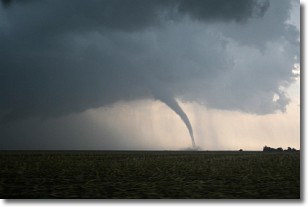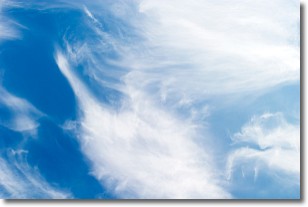Weather Alert in Pennsylvania
Special Weather Statement issued April 24 at 4:30AM EDT by NWS State College PA
AREAS AFFECTED: Clearfield; Northern Centre; Southern Centre; Cambria; Blair; Huntingdon; Mifflin; Juniata; Somerset; Bedford; Fulton; Franklin; Southern Clinton; Southern Lycoming; Union; Snyder; Montour; Northumberland; Columbia; Perry; Dauphin; Schuylkill; Lebanon; Cumberland; Adams; York; Lancaster
DESCRIPTION: A combination of very warm temperatures, low relative humidity in the 20s (percent), dry fine fuels and leaf litter, and a moderately gusty southerly breeze in the teens will create an elevated risk of wildfire spread today across the portion of Central Pennsylvania from around Interstate 80 south to the Maryland Border. The period of greatest potential for wildfire spread will be between 11 am and 7 pm today. Residents are urged to exercise caution if handling any potential ignition sources, such as machinery, cigarettes, or matches. If dry grasses and tree litter begin to burn, the fire will have the potential to spread rapidly. For more information about wildfire danger and wildfire prevention and education, please visit the Pennsylvania Department of Conservation and Natural Resources website at http://dcnr.pa.gov/Communities/Wildfire.
INSTRUCTION: N/A
Want more detail? Get the Complete 7 Day and Night Detailed Forecast!
Current U.S. National Radar--Current
The Current National Weather Radar is shown below with a UTC Time (subtract 5 hours from UTC to get Eastern Time).

National Weather Forecast--Current
The Current National Weather Forecast and National Weather Map are shown below.

National Weather Forecast for Tomorrow
Tomorrow National Weather Forecast and Tomorrow National Weather Map are show below.

North America Water Vapor (Moisture)
This map shows recent moisture content over North America. Bright and colored areas show high moisture (ie, clouds); brown indicates very little moisture present; black indicates no moisture.

Weather Topic: What are Wall Clouds?
Home - Education - Cloud Types - Wall Clouds
 Next Topic: Altocumulus Clouds
Next Topic: Altocumulus Clouds
A wall cloud forms underneath the base of a cumulonimbus cloud,
and can be a hotbed for deadly tornadoes.
Wall clouds are formed by air flowing into the cumulonimbus clouds, which can
result in the wall cloud descending from the base of the cumulonimbus cloud, or
rising fractus clouds which join to the base of the storm cloud as the wall cloud
takes shape.
Wall clouds can be very large, and in the Northern Hemisphere they generally
form at the southern edge of cumulonimbus clouds.
Next Topic: Altocumulus Clouds
Weather Topic: What are Altostratus Clouds?
Home - Education - Cloud Types - Altostratus Clouds
 Next Topic: Cirrocumulus Clouds
Next Topic: Cirrocumulus Clouds
Altostratus clouds form at mid to high-level altitudes
(between 2 and 7 km) and are created by a warm, stable air mass which causes
water vapor
to condense as it rise through the atmosphere. Usually altostratus clouds are
featureless sheets characterized by a uniform color.
In some cases, wind punching through the cloud formation may give it a waved
appearance, called altostratus undulatus. Altostratus clouds
are commonly seen with other cloud formations accompanying them.
Next Topic: Cirrocumulus Clouds
Current conditions powered by WeatherAPI.com




